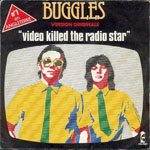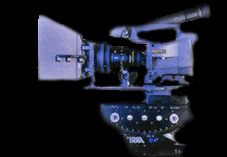For years, there has been talk about
the "death of radio," a prediction supported (supposedly) by the changes
in technology, like iPods, Internet radio, podcasting, and the like. But
history shows us that this is not the first time -- by any means -- that
the demise of radio has been predicted. Those predictions were (obviously)
wrong in the past, and it is likely that radio will weather these changes
as well.
In the 1940s, when television was first introduced, it was supposed to
replace radio. When FM radio was introduced, it was believed to signal the
end of AM. In the 1980s, many thought MTV would do away with radio.
 |
 The first video
ever - The first video
ever -
Played on MTV, a catchy little tune called Video Killed the
Radio Star (by The Buggles) espoused a commonly held
opinion.


|
|
As you've probably guessed, none of
the above predictions came true. And there's little chance of radio going
away now, even with the advent of so many technological advances. The
simple fact is that radio offers unique experiences that just can't be
duplicated by any other medium:
You can do other things while you listen to it.
Seems obvious, doesn't it? But think about it: while you listen to
radio, you can work, read, drive, mow the lawn, the list is endless.
Unlike TV and other visual mediums which draw your full attention, radio
can coexist with a number of activities.
Sure that's true of other "sound only" media, like CD players and
iPods, but that brings up the 2nd quality:
It's easy. And portable.
No carrying around of CD players, no programming of iPods -- just push
the button and you're off and running. Very few people are in favor of
technology that makes them work hard.
There's no better place to discover new music.
Let's face it, despite all the hype, the Internet has never broken a new band in a substantial way. This is in spite of 10 years of
publicity about the "revolution" in music, and hundreds of thousands of
bands posting millions of tracks to make it happen. Will it occur
eventually? Almost certainly. But radio still has the corner on
introducing new material in a big way.
Radio is personal, and immediate.
There's a reason why there's recently been a surge in talk radio,
including news, traffic and weather, politics, call-in psychologists,
computer tips, you name it. The reason is that radio -- and the power of
the human voice -- builds a sense of community that is greatly valued in
this day and age.
Now no one's denying that radio will change. A lot. XM radio is just
the beginning. We're quite possibly headed into an age where everybody can access their own customized radio station, complete
with intelligent playlists, personalized DJ choices, local news, weather,
and traffic, and more.
Much of the talent at the existing
radio stations will probably wind up fitting into the new system. In fact,
considering the explosion of delivery channels, it's likely that there
will be an even greater need for people knowledgable in all aspects of the
field.
The best way to enter this burgeoning industry? Get into the existing
structure, and ride the wave into the future. You can't predict where
you'll end up, but it's sure to be a whole lot of fun getting
there!
ZDT BROADCASTING CURRICULUM ~ RADIO SUCCESS STORIES



